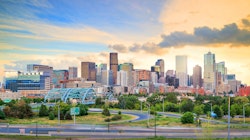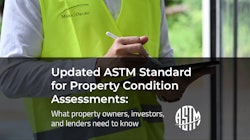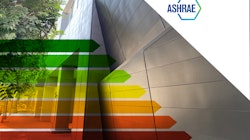

M|O Perspectives
Check back here for our thoughts on the latest developments in our industry.
The Ordinance That’s Energizing Denver: What You Should Know
Aug 15, 2023
The direct relationship between increasing levels of carbon dioxide in our atmosphere and the increase in frequency and severity of weather-related stressors is well documented. Over the last decade, tremendous efforts to reduce greenhouse gas emissions have been made across the energy production, transportation, industrial, and agriculture sectors in the US resulting in a net-emissions decrease of over 11% from 2010 levels.* However, with global warming trends continuing to escalate at unprecedented (and historic) levels, leading to drought, heat stress, sea level rise, and stronger storms, to name a few, it is clear that more needs to be done. While this is truly a global problem, the most effective solutions must begin at the community level. Whether this means a carrot or a stick approach, the goal is the same—to reduce emissions in meaningful ways.
Joining other cities and states, Denver, Colorado has shown that it, too, is at the forefront of the fight against climate change. The city has taken bold steps to address this global challenge by implementing regulations and programs that prioritize equity while enhancing energy performance in commercial and multifamily buildings. With over 49% of carbon emissions coming from commercial and multifamily buildings, Energize Denver** has targeted these properties in order to have the largest impact in achieving a lofty decarbonization goal. Energize Denver is the result of a diverse task force with a goal to improve health and equity, create jobs, and achieve an 80% reduction in carbon emissions reductions across Denver's building stock by 2040. This ambitious initiative will not only lead to lower energy bills but also have a positive impact on public health outcomes.

The Energize Denver Ordinance focuses on three energy-related efforts. (See FAQ for more information).
1/ Annual benchmarking of energy use
2/ Energy performance requirements
3/ Electrification requirements when replacing space and water heating equipment, when cost effective.
Specifically, the ordinance applies to commercial and multifamily buildings in the following ways:
• Buildings 25,000 square feet (SF) and larger must submit annual benchmarking data and reduce energy use by no less than 30% by 2030 (with interim targets set for 2024 and 2027) compared to the 2019 Energy Star published baseline Energy Use Intensity (EUI). Failure to meet these performance requirements could result in fines as much as $0.30/kBtu over the limit, as well as fines for not submitting a benchmarking report or maintaining the reductions after 2030. Refer to the Energize Denver Hub for more information.
• Buildings between 5,000-24,999 SF must meet prescriptive lighting or renewable energy requirements.
• Buildings under 5,000 SF are not subject to meeting specific performance requirements but must partially electrify buildings when it’s time to replace gas-fired heating and cooling systems, when it is cost effective. Electrification considerations apply to all buildings, not only buildings under 5,000 SF.
Energy reduction strategies are critical pieces to achieving these goals, though these measures will not be sufficient in achieving the longer-term goals of the city. This will require investments in renewable energy along with building electrification in anticipation of these carbon-free energy sources. Under Energize Denver, onsite and offsite renewable energy certificates (RECs) and solar power are counted fully as an energy reduction strategy, as this carbon-free energy will be directly subtracted from the energy used, lowering the energy use intensity of the building.
By design, the compliance metric, EUI, is relatively easy to obtain, both for benchmarking as well as the annual compliance submissions. However, identifying actual strategies to meet the reduction requirements can be a much more difficult effort, especially considering that these often require capital investment. Engaging with qualified engineers to perform an ASHRAE Energy Audit, a carbon emissions audit, an electrification assessment, and a solar feasibility study will help building owners better understand the options available to a particular property—the potential savings, the implementation cost, and the return on investment—in a way that not only helps to meet their performance goals but also allows them to prioritize and create an optimal implementation plan.
It should be noted that the city is giving economic consideration by developing incentive programs as well as leveraging existing incentives that Xcel Energy currently offers for energy efficiency assessments, upgrades, and solar installations. Extra support for under-resourced buildings will be offered by the city as well.
Curious to see how other buildings might be performing relative to yours? Now you can visit www.energizedenver.org to see how a certain building types are performing.

Energize Denver FAQ
What are the benchmarking requirements?
As a key part of the ordinance’s requirements, benchmarking reports verify for the city that building owners/operators are meeting interim and final performance requirements using a metric called Energy Use Intensity (EUI), which is a measurement of energy consumption per square foot. All large buildings must submit this report by June 1 annually. If the EUI is higher than the requirement, actions need to be taken to reduce energy use or there will be fines/penalties.
What are the energy performance requirements?
Applicable buildings over 25,000 SF shall reduce energy consumption by no less than 30% by 2030, with interim targets set for 2024 and 2027. Failure to submit a benchmarking report, meeting the performance requirements, or maintaining the reductions after 2030 will result in fines as outlined within the Energize Denver hub. In addition, building owners must electrify space and water heating equipment at the end of the existing equipment's useful life, when cost effective.
For small buildings classified as being between 5,000 and 24,999 SF, prescriptive requirements are in place in lieu of specific energy reduction targets. Small building owners either need to install LED lighting to cover at least 90% of the building’s lighting load, install lighting that meets 2019 Denver Building and Fire code requirements for lighting power density, or install or purchase renewable energy to account for at least 20% of the building's annual energy usage.
For all existing buildings, including buildings under 5,000 SF, at the end of a building's HVAC equipment's and water heater's useful service lives, owners must consider electrification of equipment. Quick permits for equipment replacement will no longer be available, and ownership must complete an Electrification Feasibility Report to determine the cost effectiveness of a gas-fired equipment replacement with an electric alternative.
How do you benchmark multiple buildings that share a utility meter?
Owners can benchmark all included buildings as a single building, though it may be advantageous to install equipment to submeter usage if one or more of these buildings are particularly poor performers. This may also be the case for retail strip malls typically benchmarked as a single building.
Does Energize Denver preclude other city and state green building requirements?
No, buildings over 25,000 SF are still required to meet the Denver Green Building Ordinance and buildings over 50,000 SF must report their benchmarking to the State of Colorado.
Does Energize Denver apply to new buildings?
No, buildings built to comply with Denver's 2022 building code should be ready to perform at the target performance level making it unnecessary for them to comply within the first 12-months of operations. After this period, the building is considered an existing building and will be subject to Energize Denver requirements.

Navigating Compliance
It’s important to understand the nuances of programs like Energize Denver that are popping up around the country and how to ensure no stone is left unturned. At Marx|Okubo, we continually learn through helping many clients with this type of compliance in Denver—and across the US—to help them navigate issues, evaluate energy efficiency, and prioritize spending. For example, recently:
• In Denver—our team has prepared and submitted Electrification Feasibility Reports (EFRs) for the City of Denver's Electrification Pilot Program, assessing the feasibility of replacing heating, ventilating and air conditioning (HVAC) equipment including one gas-fired package rooftop unit and two roof-mounted gas-fired makeup air units with electric alternatives. In addition, we perform ASHRAE Level II and ASHRAE Level III Energy Audits for existing buildings to determine the energy consumption and energy conservation measures to reduce the annual energy consumption of the buildings.
• In Chicago, Denver, and Washington, D.C., we have used the Carbon Risk Real Estate Monitoring (CRREM) Tool to assess the required reduction in carbon emissions for assets alongside our due diligence property condition assessments.
• In Chicago—as the city is one of many that requires annual benchmarking of certain building types (based on occupancy/usage and size), we performed ENERGY STAR Building Performance Verification for retail and office buildings. This professional verification can ultimately be used for ENERGY STAR certification.
• In Phillipsburg, NJ—Marx|Okubo has assisted in reviews of proposed photovoltaic systems such as a review of a 5-MW photovoltaic system installed at the roof of a warehouse. Our team provided a preliminary project review of the proposed system, considering the existing building characteristics (such as roof warranty and load capacity, existing electrical, etc.). Marx|Okubo also observed and monitored the project during construction.
To learn more about measuring performance, identifying high-performance strategies, or navigating the Energize Denver Ordinance specifically, contact Michael_Silverman@marxokubo.com or Jamie_Rivera@marxokubo.com.
*https://www.statista.com/statistics/183943/us-carbon-dioxide-emissions-from-1999/

What we do.
- Owner's Representation
- Property Condition Assessment
- Project Management
- Constructability Reviews
- Repair | Reconstruction
- Facility Condition Assessment
- Construction Loan Monitoring
- Accessibility
- Building Enclosure
- Fire | Life Safety
- Mechanical | Electrical | Plumbing
- ESG | Sustainability & Resiliency
- Structural Engineering
- ASAP® - Automated Structure Alert Program
Marx|Okubo is a national architecture/engineering/construction consulting firm that works with real estate owners, investors and lenders—at every point of the property lifecycle—to evaluate their building projects, solve complex challenges and implement tailored solutions. We help clients understand their projects’ complexities, so they can make more informed decisions and, ultimately, mitigate their risk.




